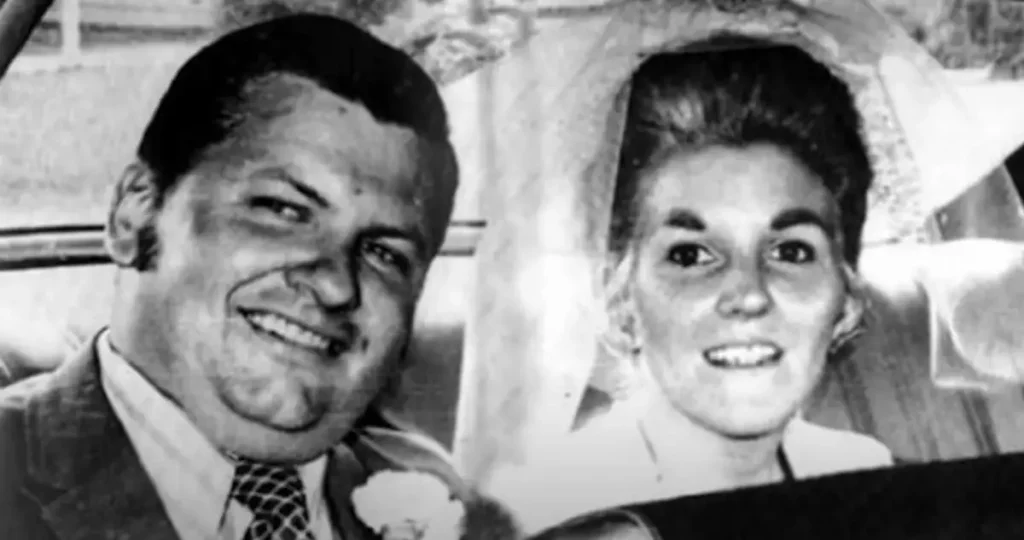Michael Gacy's story is one of the most chilling tales in the annals of American crime history. Known as the "Killer Clown," Gacy's life and crimes have left an indelible mark on society, sparking conversations about the nature of evil and the dangers of deception. This article delves into the life, crimes, and legacy of Michael Gacy, exploring the factors that shaped one of the most notorious serial killers in history.
Beyond the headlines and the sensationalism, understanding Michael Gacy requires a deeper examination of his background, motivations, and the societal impact of his actions. His ability to deceive those around him while committing heinous crimes raises critical questions about trust and human nature.
This article aims to provide a comprehensive overview of Michael Gacy's life, focusing on the key events that defined his existence. By exploring his early life, criminal activities, and eventual capture, we hope to shed light on the complexities of his persona and the lessons society can learn from his story.
Read also:Bradley Steven Perry A Rising Star In The Entertainment Industry
Biography of Michael Gacy
Michael John Gacy Jr. was born on March 18, 1942, in Chicago, Illinois. His early life was marked by a series of events that shaped his personality and laid the foundation for his future actions. Growing up in a strict Catholic household, Gacy faced significant challenges that influenced his development.
Early Life and Family Background
Gacy's childhood was far from ideal. His father, John Gacy Sr., was an abusive alcoholic who subjected young Michael to physical and emotional abuse. This environment of fear and hostility likely contributed to his psychological issues later in life. Despite these challenges, Gacy managed to excel academically and was involved in various extracurricular activities during his school years.
Below is a summary of Michael Gacy's personal information:
| Full Name | Michael John Gacy Jr. |
|---|---|
| Date of Birth | March 18, 1942 |
| Place of Birth | Chicago, Illinois, USA |
| Occupation | Contractor, Entertainer (as "Pogo the Clown") |
| Known For | Serial killings of 33 young men and boys |
Michael Gacy's Criminal Activities
Transformation into a Serial Killer
Michael Gacy's transformation from a seemingly ordinary individual into one of the most infamous serial killers in history is a chilling narrative. His crimes, which spanned several years, were characterized by meticulous planning and a chilling ability to deceive those around him.
Between 1972 and 1978, Gacy lured young men and boys to his home under the guise of offering them employment or friendship. Once there, he would sexually assault and murder them, burying their bodies beneath his house and in nearby areas.
Key Events in Gacy's Life
Early Signs of Trouble
Long before his crimes came to light, there were signs that something was amiss in Michael Gacy's life. In 1968, he was convicted of sexually assaulting two teenage boys in Iowa, for which he served a prison sentence. This early incident hinted at the darker side of his personality that would later emerge in full force.
Read also:Leah Sava Jeffries The Rising Star In Music And Entertainment
The Killer Clown Persona
Gacy's ability to compartmentalize his life was evident in his public persona as "Pogo the Clown." He entertained at children's parties and charitable events, earning praise from the community for his contributions. This dichotomy between his public and private lives added to the shock when his crimes were eventually uncovered.
Investigation and Capture
The Break in the Case
The investigation into Michael Gacy's crimes began in December 1978 when a young man named Robert Piest went missing after leaving his job at a local restaurant. Piest's disappearance led police to Gacy's home, where they discovered evidence linking him to multiple murders.
During the search of Gacy's property, authorities uncovered the remains of several victims buried in his basement. Further searches revealed additional bodies in nearby waterways, bringing the total number of confirmed victims to 33.
Psychological Profile of Michael Gacy
Understanding the Mind of a Killer
Psychologists and criminologists have long studied Michael Gacy's behavior in an attempt to understand the motivations behind his crimes. While no definitive answer exists, several factors have been identified as contributing to his actions:
- Childhood trauma and abuse
- Personality disorders, including narcissism and antisocial tendencies
- Ability to manipulate and deceive others
These factors, combined with his troubled upbringing, created a perfect storm that led to his descent into darkness.
Legal Proceedings and Trial
The Verdict
Michael Gacy's trial, which began in February 1980, captured national attention. Despite his attempts to plead insanity, Gacy was convicted of 33 counts of murder and sentenced to death. His execution by lethal injection took place on May 10, 1994, bringing closure to the families of his victims.
Legacy and Impact
Michael Gacy in Popular Culture
Gacy's story has been the subject of numerous books, documentaries, and films, ensuring that his legacy endures long after his death. These portrayals often focus on the duality of his persona, highlighting the dangers of deception and the importance of vigilance in society.
Some notable works inspired by Michael Gacy include:
- "The Killer Clown," a documentary exploring his life and crimes
- "Gacy," a 1994 film starring John Lone as the infamous serial killer
- Various true crime podcasts and television series
Lessons Learned from Michael Gacy's Story
Preventing Future Crimes
The story of Michael Gacy serves as a stark reminder of the importance of community vigilance and the need for improved mental health resources. By understanding the factors that contribute to criminal behavior, society can work towards preventing similar tragedies in the future.
Key takeaways from Gacy's case include:
- The importance of recognizing warning signs in individuals
- The need for better support systems for those affected by trauma
- The critical role of law enforcement in investigating suspicious activities
Conclusion
Michael Gacy's life and crimes represent one of the darkest chapters in American history. From his early years marked by abuse to his transformation into a serial killer, his story is a complex tapestry of tragedy and deception. Understanding the factors that contributed to his actions is crucial in preventing similar occurrences in the future.
We invite readers to share their thoughts and reflections in the comments section below. By engaging in open dialogue, we can continue to learn from the past and work towards a safer, more informed society. For those interested in further reading, we recommend exploring the resources cited in this article and delving deeper into the world of true crime and psychology.
Table of Contents
- Biography of Michael Gacy
- Michael Gacy's Criminal Activities
- Key Events in Gacy's Life
- Investigation and Capture
- Psychological Profile of Michael Gacy
- Legal Proceedings and Trial
- Legacy and Impact
- Lessons Learned from Michael Gacy's Story
- Conclusion


